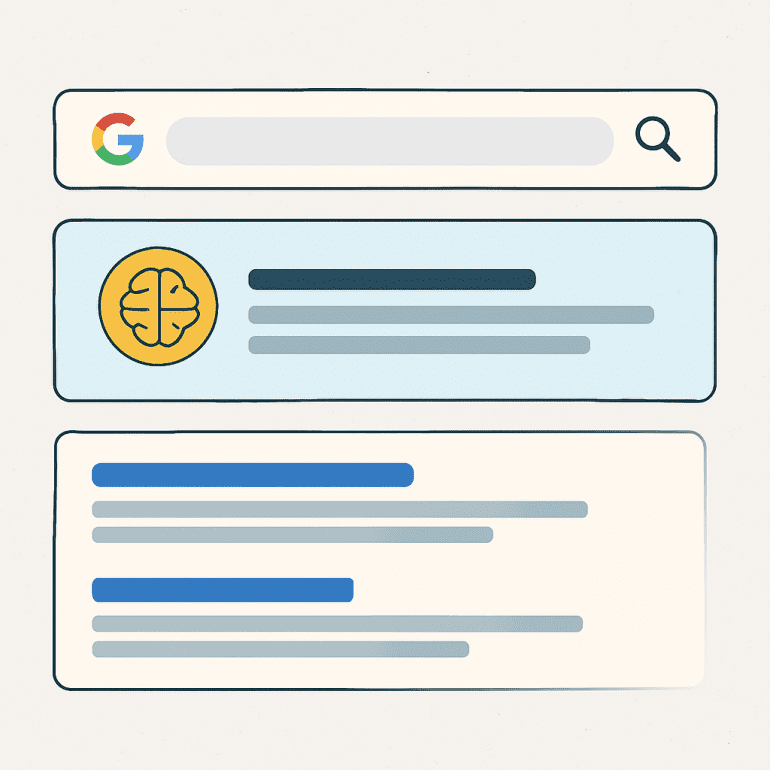A new Pew Research study on AI summary search results reveals that users are significantly less likely to click on links when a summary appears. The findings confirm what many in the search and content industries suspected. When Google’s AI Overview provides a direct answer at the top of the page, users stop scrolling.

The shift may seem small, but it has outsized implications. Click-through rates are a foundational part of how the internet works. Publishers, platforms and advertisers all depend on that behaviour to measure engagement, shape user journeys and sustain business models. If the click disappears, everything around it starts to destabilise.
Google’s AI Overviews, rolled out more widely in 2024, reflect a growing trend to integrate generative AI into search. The value proposition is clear: speed, simplicity, convenience. But search is changing. It is becoming flatter and more transactional. Users want answers, not paths.
The concern isn’t just about attention. It is also about accuracy and trust. Users often treat AI-generated summaries as definitive, despite not knowing what sources they rely on or how they were assembled. The original links are still there, but fewer users click on them. The summary becomes the destination.

For publishers, that poses a threat. But for the public, it raises deeper questions about how information is discovered and evaluated. As generative AI becomes a search gatekeeper, the diversity of thought and depth of analysis that links once offered could disappear under a layer of synthetic certainty.
In South Africa, where data is expensive and digital literacy uneven, the stakes are even higher. AI summaries might help users get quick answers without using as much data, but they may also discourage deeper reading or engagement with original sources.
Some content platforms are beginning to adapt. Newsrooms are rethinking SEO strategies. Creators are exploring new models for visibility and engagement. Across the industry, there’s a growing recognition that AI is not neutral. It shapes attention and filters knowledge through opaque logic.
Thoughtful applications of AI do exist — and they point to a better way forward. In a recent piece on Reframed, Four lessons from two million AI skills training successes, the focus is on how AI can support deeper engagement when designed for long-term impact rather than short-term convenience. Search, arguably the most powerful interface on the web, should be held to the same standard.
If users stop clicking, they stop exploring. And when the journey ends at the summary, the internet becomes smaller. Search has always been a gateway to discovery — but without the click, we risk turning the web into a series of final answers instead of open questions.


